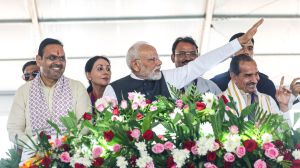Planning to study abroad? How can Indian students identify best scholarship opportunities
Adopting a structured approach to identifying scholarships that align with personal goals, financial needs, and long-term aspirations, can make the study abroad journey easier.
 Study Abroad: How to find the best scholarship (Pexels/ representative image)
Study Abroad: How to find the best scholarship (Pexels/ representative image)– Prashant A Bhonsle
For many Indian students, scholarships mean much more than just financial aid. They act as gateways to realizing academic ambitions and overcoming economic barriers. The journey to securing these opportunities, however, requires more than academic merit; it demands strategic navigation of a complex ecosystem. However, adopting a structured approach to identifying scholarships that align with personal goals, financial needs, and long-term aspirations, can make this journey easier.
Understanding the scholarship ecosystem
Scholarships are as diverse as the students who seek them. Governments, universities, and private institutions worldwide design programs to support specific academic disciplines, socioeconomic backgrounds, or regions. Merit-based awards recognize academic excellence, while need-based scholarships prioritize financial hardship. Subject-specific grants target fields like renewable energy or public health, which are closely aligned with global priorities. Country-specific programs, such as Germany’s DAAD or Japan’s MEXT, aim to strengthen international ties by funding studies within their borders. Indian government initiatives, like the National Overseas Scholarship, focus on empowering marginalized communities. By understanding these distinctions, students can narrow down their search to opportunities that resonate with their unique circumstances.
Strategies for targeted research
The foundation of a successful scholarship search lies in thorough, organized research. Begin with reputable platforms: international databases such as the Fulbright Commission, and university financial aid pages. For instance, the University of Cambridge lists over 100 scholarships for international students annually, including the Cambridge Trust awards. Subscribing to newsletters from organizations like the British Council ensures timely updates on new opportunities.
Eligibility criteria often determine an applicant’s viability. A student with a 90 per cent academic average might qualify for merit-based awards like the Inlaks Shivdasani Foundation Scholarship, while those with leadership experience could explore the AAUW International Fellowships. Financial parameters in these scholarships vary widely. Some of them cover full tuition and living costs, while others offer partial stipends. The Rhodes Scholarship, for example, not only funds postgraduate studies at Oxford but also provides mentorship and global networking forums.
Acing the application
Applications require meticulous attention to detail and authenticity. Deadlines often precede academic sessions by 10 to 12 months, which make early preparation all the more important. A student aiming for the 2026 intake of the Chevening Scholarship, for instance, would be required to submit essays and references by November 2025.
Personal statements are the heart of any application. Rather than listing achievements, these essays should weave a narrative that connects past experiences to future goals. So, a candidate applying for a climate science scholarship might describe fieldwork in the Himalayas, linking it to their desire to study glaciology abroad. Furthermore, recommendation letters should come from mentors who can speak to the applicant’s resilience and potential, qualities that grades alone cannot convey.
Interviews, a final hurdle for prestigious awards, test both preparedness and passion. Panels often probe applicants on how they’ll contribute to their host institution and home country. Practicing concise, thoughtful responses can make a lasting impression.
Addressing common challenges
The scholarship search is often fraught with obstacles. Many students struggle to balance application demands with academic responsibilities. Breaking tasks into smaller steps, such as dedicating weekends to essay drafts or weekday evenings to document collection, can alleviate overwhelm. Financial constraints, such as IELTS exam fees, might be mitigated through fee-waiver programs offered by different organizations.
Another challenge lies in discerning credible opportunities. Fraudulent schemes often mimic legitimate scholarships, requesting upfront payments or sensitive data. Cross-referencing details on official government or university websites can help avoid such scams.
Ensuring success
Rejection is an inevitable part of the process, but persistence pays. A student having denied the Erasmus Mundus Scholarship might still qualify for the VLIR-UOS Awards in Belgium, which share similar criteria but receive fewer applications. Connecting with past scholars via LinkedIn or alumni networks can provide personalized advice, such as customizing applications to emphasize interdisciplinary interests or volunteer work.
Staying informed about evolving opportunities is equally vital. Emerging fields like AI ethics or sustainable urban planning have spurred new scholarships, such as the MIT Tata Center Fellowships. Subscribing to newsletters from trusted sources ensures students remain aware of these developments.
Identifying the right scholarship is a journey of self-discovery and strategic planning. It requires students to reflect on their strengths, articulate their aspirations, and persistently pursue opportunities that align with their vision. While the path may seem daunting, each application hones valuable skills, such as research, writing, and critical thinking, that serve scholars long after graduation. For those willing to invest the effort, scholarships offer more than financial relief; they unlock doors to global education, cross-cultural exchange, and a future defined by possibility.
(The author is the founder and CEO, Kuhoo Edufintech)




- 01
- 02
- 03
- 04
- 05


























